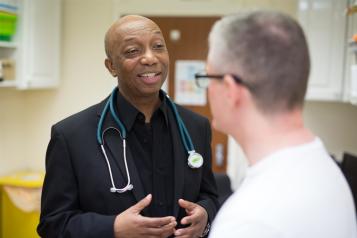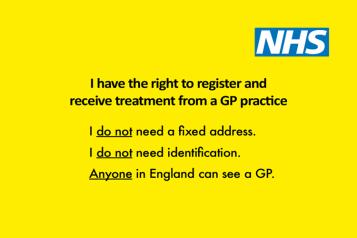Nacro finds prison leavers turned away from primary care

This is because they are less likely than most to have proof of ID or proof of address. However, neither proof of ID nor proof of address are needed to register under NHS official guidance.
The Nacro report 'Turned Away' found
- 40% of GP surgeries they surveyed said documentation was a requirement to register as a patient.
- 58% of GP practices rated as ‘good’ by the Care Quality Commission (CQC) said they required proof of address to register a prison leaver
- Four out of the five GP practices rated as ‘outstanding’ by the CQC also still required proof of address.
Nacro's report highlights how being unable to access primary healthcare can have significant consequences for people leaving prison as well as being an ineffective use of resources. It recommends a review of the NHS' current communication strategy regarding the registration of patients from Inclusion Health Groups, including people who have been in contact with the criminal justice system.
The report also makes the case for Inclusive Health training for all GP receptionists and practice managers to ensure a better awareness of responsibilities, as well as to commission regular independent ‘mystery shopper’ projects to monitor behaviour and adherence to guidelines, and to take action when poor practice is discovered.
If someone cannot register at a GP surgery, they are unlikely to have their physical and mental health needs met and this potentially increases their physical and mental vulnerability or their likelihood of reoffending.
Barriers to GP Registration in Haringey
The Nacro report reflects the findings of earlier research including our own research in Haringey. We carried out three surveys in 2022 / 2023 and found a similar pattern. People from the most vulnerable communities including undocumented migrants and people fleeing domestic violence are facing barriers to accessing healthcare in Haringey.
Some of our findings were:
39 surgeries were called in the mystery shopping telephone survey
- 24 out of 39 said they needed to see proof of address.
- 30 out of 39 surgeries said they needed to see ID.
39 surgeries were visited in person*
- 20 out of 37 required proof of address.
- 20 out of 37 required ID.
(*One would not answer questions, one was closed, so 37 were surveyed)
We have shared our data with GP surgeries and we will be carrying out a review later this year.


